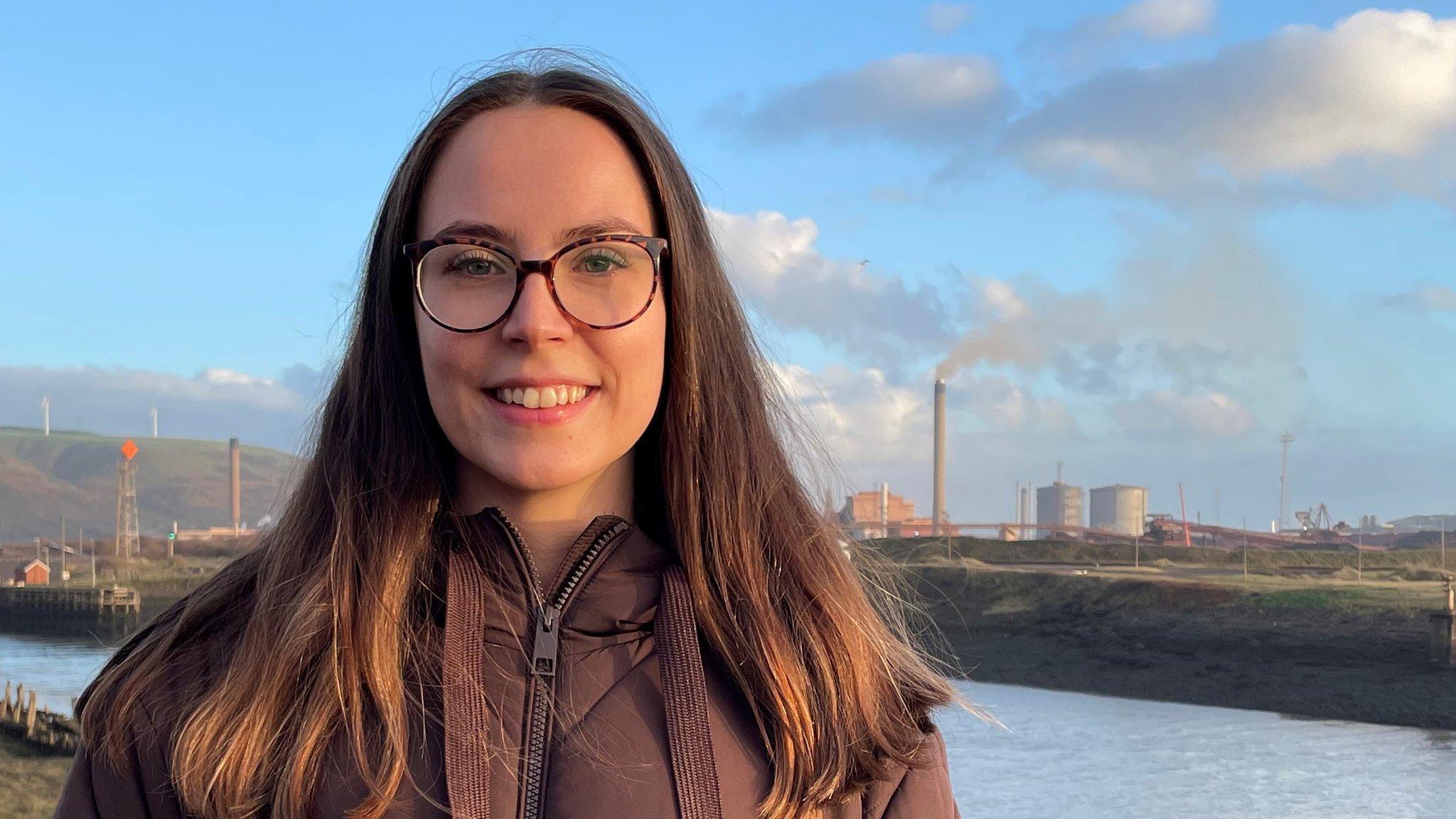Tata Steel tells staff of £160m losses in three months
- Published
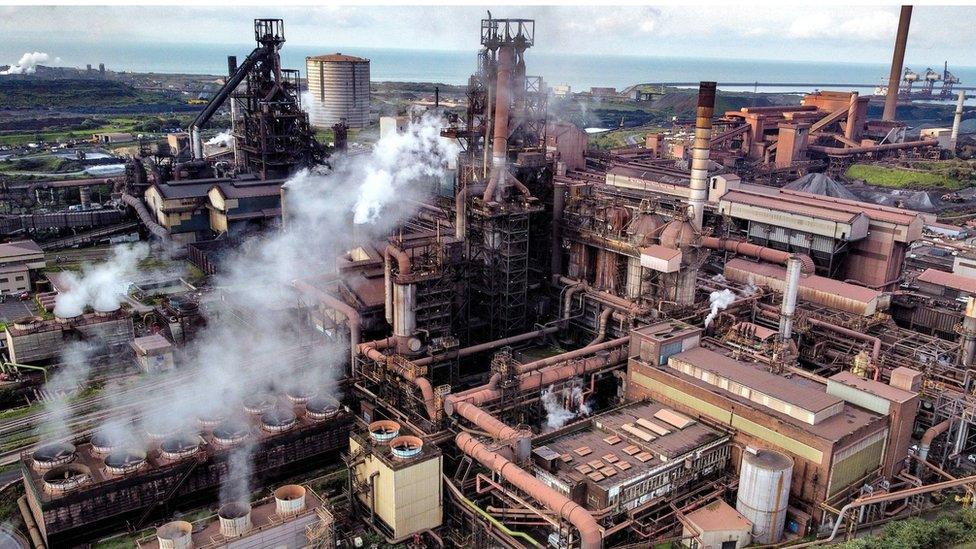
Tata steel announced there would be 2,800 job losses over the next three years
Tata Steel has told workers it has lost £160m in the past three months - around £1.7m a day.
In a message to staff the company said it is "open to further investment" in Port Talbot, but it did not expect any government to cover its losses.
Some politicians have questioned its claimed losses, but Tata Steel said its audited accounts were a "true and fair view" of its finances.
Unions and Tata Steel will consult over restructuring plans to cut 2,800 jobs.
Steel company executives will face scrutiny from MPs on Wednesday when they appear before the Welsh Affairs Select Committee.
In a "fact checker" memo to its workforce the company said it wanted to respond to "incomplete" and "misleading" speculation about its UK operations.
The company has announced it will close both blast furnaces in Port Talbot, the UK's largest steelworks, by the end of 2024.
It will then build a greener electric arc furnace in future which melts scrap steel.
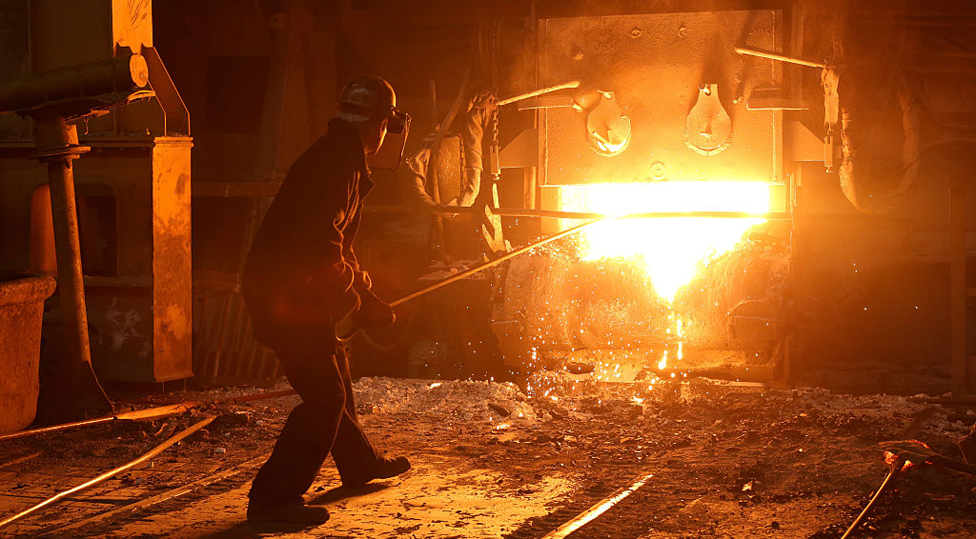
An electric arc furnace at a steel plant in Izhevsk, Russia
Unions and the Welsh government have called for a transition period between the end of blast furnace production and the launch of a greener steelmaking facility.
"It's not an option to continue with the status quo," the company said. "If we don't act to dramatically reduce our CO₂ emissions, we will be out of business."
Stephen Kinnock, Labour MP for Aberavon had questioned Tata Steel's claim that it was losing over £1m a day.
"I think somebody needs to look at that figure, because I have always been very sceptical about that figure," he told the BBC on 18 January.
Tata Steel UK "pays carbon costs of £70-£80m a year for operating its blast furnaces" and said it had lost over £4bn since buying the UK steel business from Corus in 2007.
The company has committed to investing £750m in a new electric arc furnace in Port Talbot, which the UK government will also support with a £500m subsidy.
In a BBC Wales interview when its plans were announced the chief executive of Tata Steel, TV Narendran, said he would welcome future government subsidies to add greater steelmaking capacity to Port Talbot.
The message was repeated in the document sent to staff, with the company stating that "with the right investment and policy environment, it is open to further investment, such as in a direct reduced iron (DRI) plant."
DRI is a cleaner method of producing iron using natural gas. The iron is then fed into an electric arc furnace to produce steel.
Tata added it would consider building a DRI plant "if the business conditions are right and, if in future, the government supported further investment".
But it warned that staffing levels on a DRI plant, as with an electric furnace, are far lower than the numbers required to operate a blast furnace.

STEELTOWN MURDERS: Three murders - unsolved but never forgotten
UNMISSABLE DRAMA: When the Wolf is at the door, be very afraid

- Published22 January 2024
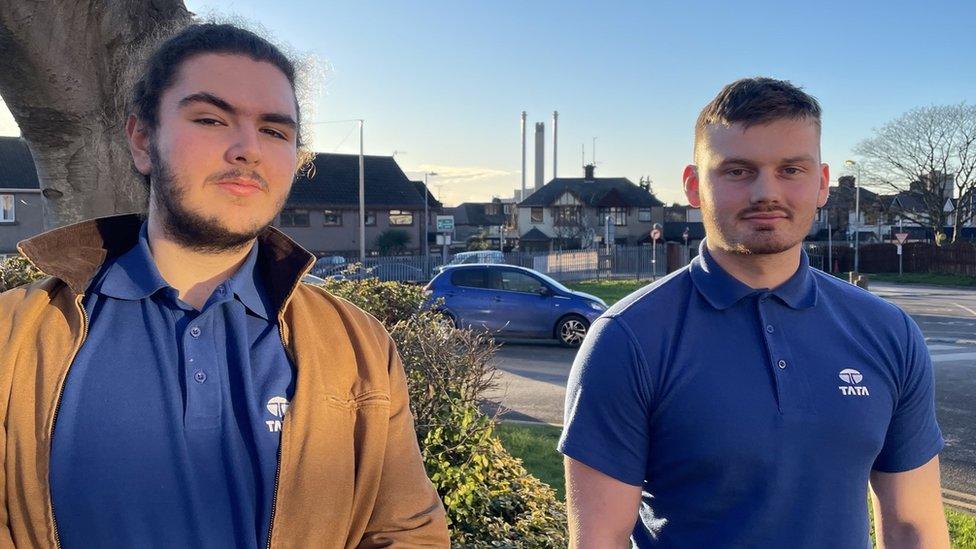
- Published19 January 2024
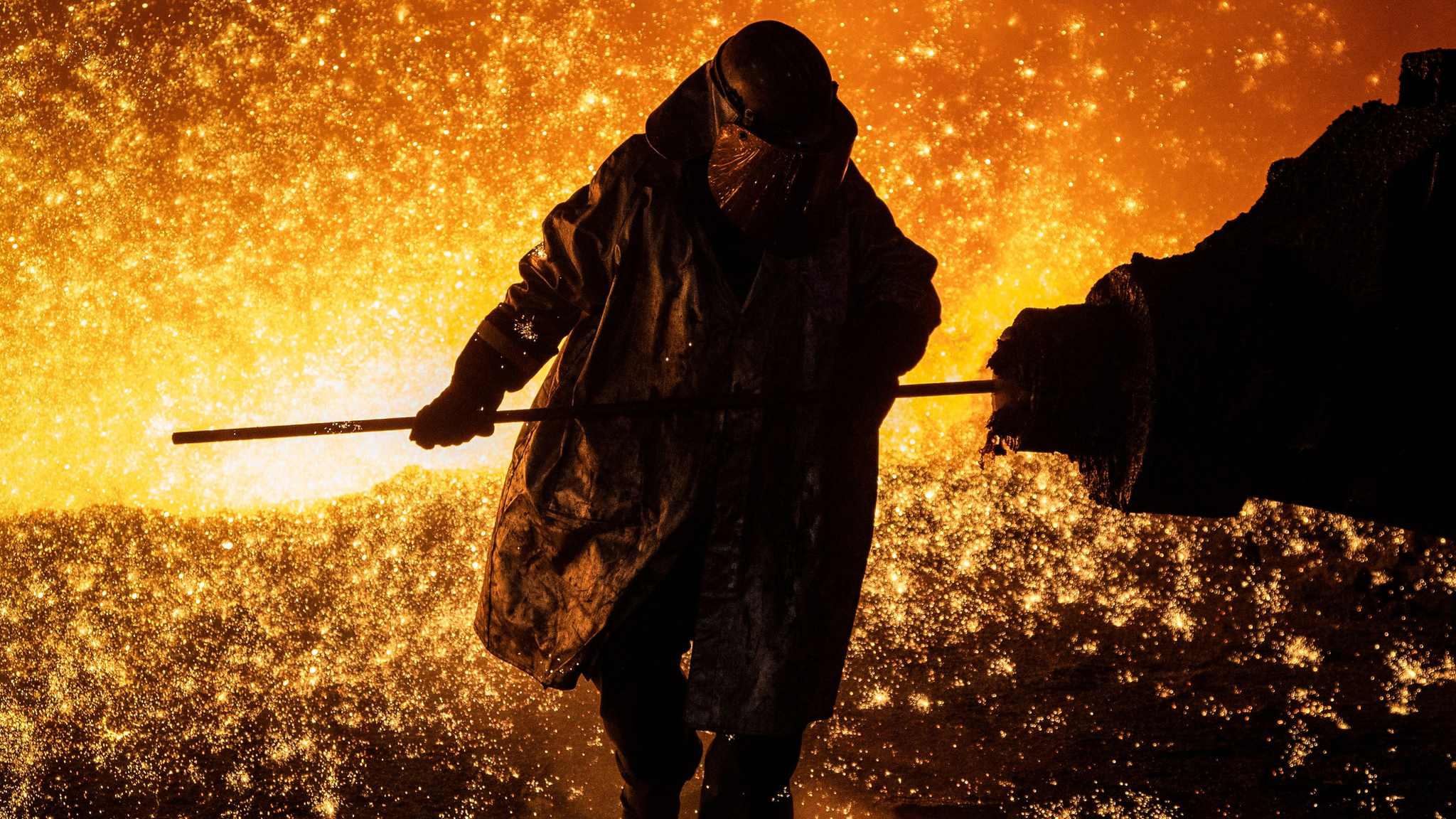
- Published18 January 2024
